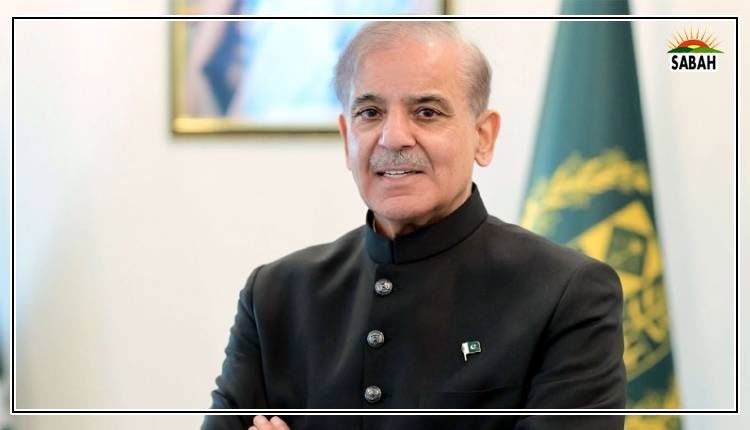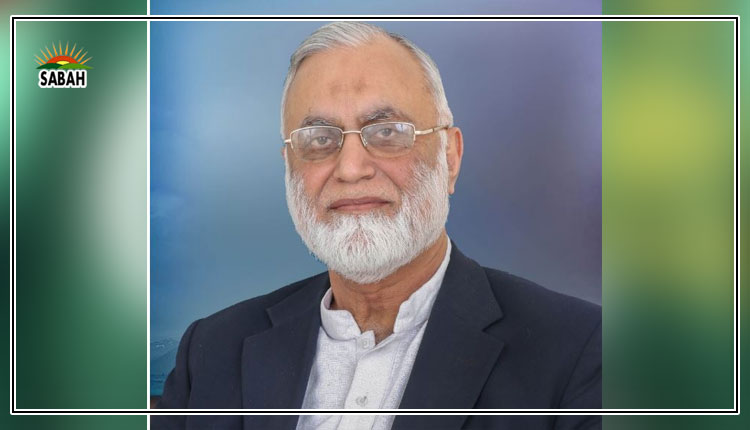Navigating New York …….. Sherry Rehman
Navigating multilateralism in September is about the same as negotiating gridlock in New York. As the 78th session of the UN General assembly convened in Manhattan, questions about the power and failures of multilateralism broke new ground. What it seeks, how it operates, and where it can potentially go for delivering action on goals became headline discourse on many forums, with climate inaction burning a hole across all development targets. Citizens’ marches from New York to Karachi signalled a growing generational frustration as well as interest in the environmental crisis impacting life as we know it, and suggest an enhanced public stake in reform.
Anger at climate inaction is very real, and not entirely unjustified.
This year, there is also a general consensus that global leadership needs a hard reset in all its forms. In broad strokes, even among policy elites in the developed countries, the world today is seen as dark, divided, and perilous. The promise of multilateralism after the Second World War unity has run into the gridlock of differences defined by the usual suspects: competing nationalisms, economic contests, and geopolitics redux. The post-everything world order no longer has a bold new metaphor that can form the intellectual and social basis of global purpose. The volatility of global capitalism, liberalism’s retreat and the emergence of minilateral clubs have converged to splinter and crackle the gloss on multilateralism’s sputtering flame.
In this time of global churn, how does a country like Pakistan navigate the narrative, the noise and the ‘preferenda’? How we make sense of the multipolar world can either take us to balance or push the scales to new peril. The US-China competition has decimated the ‘end of history’ moment, as has the return of war to Eurasia. The conflict in Ukraine has hurt the ability of energy-importing countries to manage their consumption, with a cost of living crisis reversing gains. The Black Sea grain deal which signaled some relief in high food prices in low-income countries fell away to geopolitical tensions. Pakistan is a case in point, with climate emergencies and inflation hitting record highs, compounded by real-time dependencies on food imports and expensive fuel.
The problem is that the path to transformational progress for 21st century challenges is not in any single country’s hands. Even as the Sustainable Development Goals summit colour-wheel of 17 indicators lit up the sky in New York, UN dashboards exposed a grey reality on the ground. Cutting across all sectoral trendlines was the inflection factor of the climate crisis. Failures to uphold sustained and bold climate actions had severely impacted the ability of countries to achieve their SDG targets, which are off-path-progress for 2030.
The same is true for climate and environment pledges. After a red-hot summer of discontent which redefined global warming for the whole world, the Global Stock-Take report just released by the UNFCCC for COP28 was a bellwether call to action, both globally and within countries that need to review their performance. Leadership responses by and large were not mild, or couched in last-century denialism. Irrespective of traction on agendas, in every forum, the language was heated as much as the stakes. The toughest reality check came from UNSG Guterres himself when he said that humanity through climate change has “opened the gates to hell”. And yet. While serial failures of multilateralism were on show, the counterfactual that dominated the week was that nothing can work in silos anymore.
In every crisis, there is of course a moment of opportunity. What is not an option for many in the Global South, or the band of developing and less developed countries that brought critical mass to the COP27 negotiations in Egypt, is the luxury of strategic drift. Some leftist voices are now seeking a Bandung 2.0 alliance, which was created for Afro-Asian solidarity in 1955, to resource post-colonial economies struggling to manage poverty and other challenges, but sputtered in the face of inertia and rivalries. Despite its spectacular failures, Bandung encapsulated a moment in history where unity could signal change, and where multilateralism at its best could actually deliver on its promise of hope in a less contested global commons.
For this decade of existential change, at global forums the large G77 plus China group matters. Last year Pakistan’s government was able to leverage this loose alliance quite effectively for lobbying core interests at multilateral forums such as COP27, and once again it can be creatively utilized along with civil society groups to push for reforms in the international financial architecture.
In this year’s New York moment, while Pakistan endorsed the UN SDG conference resolution for a stimulus fund of $500 billion for developing countries, for COP28 the PM reiterated the ask for the fulfillment of the $100 billion pledge by developed countries for climate financing of resilience in the Global South, with an allocation of half of this for adaptation needs.
Set in the context of alarming climate vulnerabilities and growing calls for shrinking the yawning gap in resources and capacity between the rich and the developing world, climate justice remained an important and repeated ask for Pakistan. However, while it was also made part of the demands at New York, the Loss and Damage fund set in motion against many overwhelming odds last year by Pakistan’s leadership at COP27 still remained in need of a big push again, with recent intercessional meetings reporting more talk than, well, walk. The fact is that triggering that Fund will only be possible if sustained, not episodic planning, goes into the process. The US and the WB may lead some initiatives like a Resilient Futures Fund but Pakistan should not miss the boat.
For aligning national goals with global trajectories, being in the moment is crucial. Just as framing the ferocity of mega-flood 2022 in the context of global warming and climate justice was important last year, pushing our public diplomacy in the context of climate and development financing is pivotal now.
Today, a key message for Pakistan to send as it reaches out to external players to shore up its resources is that it is ready for fundamental structural reforms and economic probity. This can begin by a demonstration of across-the-board signalling that human and climate security is now a national priority. To leverage multilateralism in a donor-fatigued environment, a visible commitment to going beyond business-as-usual in institutional responses and governance overhauls is needed.
Financing reform will actually mean building capacity for working data-driven impact assessments and designing plans into bankable projects for climate financing via MDBs and bilateral donors to invest in. This means leaders will have to commit to a surge in executive capacity, transparent governance and political focus for rebooting our slow pace of development, especially as the country falters on key SDG targets such as health and education.
The latest report on country goals on health goals says we are falling behind on maternal and infant mortality rates, with our score stagnating or improving on less than 50 per cent of the required rate. Malnutrition, food intake, environmental health and women’s health remain a serious challenge, with latest data from the World bank suggesting 40 per cent of under-five children falling prey to stunting due to the above reasons. Apart from a tragic story of growing fragility this has long intergenerational impacts.
On education, the data is worse, with 22 million children out of school, with few skills to sell. At the same time, our population growth rate remains a ticking time bomb as it overtakes many others at 2.55 per cent, with women in many communities still not given autonomy over marriage, health or birth-spacing choices. Water insecurity, poor air quality and growing climate-driven food vulnerability in a context of high political volatility also adds fuel to this dangerous mix.
While we search for justice abroad, as we must do in the climate context, (which is the only SDG target at home that is actually on an upward trajectory), it is important to harness democracy and politics to the wheel of an economic reset, to redistributive justice, and investments in the education, health and wellbeing of our people. The wealth will begin to follow, as will international credibility.
The writer is the former federal minister for climate change and environmental coordination.
Courtesy The News












